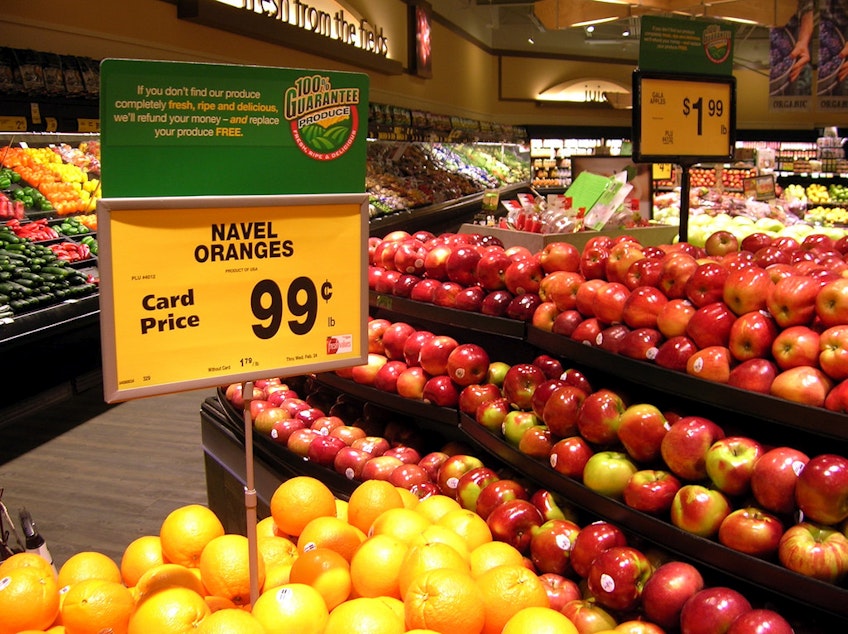When you buy cheap, someone pays

Seattle (or Amazon-town, if you prefer) is ground zero for cheap things. Amazon has built a world-altering business out of discounting products online.
And author Raj Patel says that’s not a good thing.
Patel, co-author of the book "A History of the World in Seven Cheap Things," told Bill Radke that our quest to make products cheaper is hurting workers, consumers and the earth.
“What’s wrong with cheap is the huge amount of infrastructure that has been created over centuries to be able to allow these externalities to happen,” Patel said. “For example, how is it that we can have a dead zone in the Gulf of Mexico the size of New Jersey as a result of pesticide runoff? What has happened in the world to make that OK?”
In his book, Patel examines the history of capitalism, going as far back as Christopher Columbus and his search for riches in the so-called new world.
Sponsored
“You live in the town that embodies this the most in many ways,” Patel told Radke. “Jeff Bezos is here, and he’s been very explicit that what he’d like to do is fund and support the colonization of the moon, so that entrepreneurship and capitalism can flourish there. And in almost every way that matters, he’s kind of like a modern Columbus.”
After acquiring Whole Foods this year, Amazon introduced lower prices. But Patel said he believes we generally pay too little for things like food.
“The downward push on prices for farmers gets translated into a downward push on farm workers, who are the poorest paid people in the United States,” he said.
And he said that cheap electronics support exploitative labor practices around the world. He pointed to a recent report that stated there still are 40 million slaves in the world, many of whom mine the metals used in technological devices.
“I’m not saying that Amazon is responsible for slavery,” Patel said. “I’m saying that all of us are touched by the slavery that’s involved in our cheap consumer electronics.”
Sponsored
Patel said he would like to see the world move toward providing higher wages and basic income, especially for people who are involved in the largely uncompensated work of caretaking. He said Seattle’s recent move to raise the minimum wage to $15 an hour is a start, but not nearly enough for families living in the increasingly expensive city.
Patel said he doesn’t think it’s a coincidence that Amazon grew out of a progressive city on the West Coast.
“I don’t think it’s an accident that here at the western frontier, you have a much newer form, a much more ready and robust form of capitalism than you might find on the East Coast,” he said.
But ultimately, he wants people to feel free to imagine a world where white supremacy, sexism and capitalism don’t continue to hurt vulnerable people.
“It’s a dream that I think everyone should be able to get behind,” Patel said.

